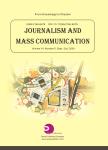Mitt Romney, Mormonism, and Religion in the 2008 Presidential Election
Mitt Romney, Mormonism, and Religion in the 2008 Presidential Election作者机构:University of Alabama-Birmingham (UAB) Birmingham USA
出 版 物:《Journalism and Mass Communication》 (新闻与大众传媒(英文版))
年 卷 期:2013年第3卷第2期
页 面:87-100页
学科分类:01[哲学] 0101[哲学-哲学] 010107[哲学-宗教学]
主 题:Romney religion Mormons presidential campaigns
摘 要:This study examined the impact of Mormonism on the 2008 presidential campaign of Mitt Romney. Romney faced a situation that reminded observers of John F. Kennedy's 1960 campaign. In 1960, Kennedy faced doubts about his Catholicism while Ronmey faced questions about the Mormon religion. Kennedy faced those doubts directly with a speech in Houston, Texas late in the campaign. Romney tried to do the same thing with a speech on his religious beliefs early in the primary campaigns. Kennedy's speech was effective, and he went on to win the presidential election. Romney's speech was not effective, and he was out of the race within two months. Kennedy's speech directly addressed the public's questions about Catholicism, while Romney's speech was an appeal for religious tolerance. The speech is examined in terms of the Pharisee Effect, a hypothesis which argues that religious appeals in politics failure if they are over used. Some voters were turned off by the negative image of his religion--a response consistent with the fanaticism backlash of the Pharisee Effect. Others may have reacted negatively to his perceived inauthentic attempts to reach out to evangelicals--a move that is consistent with the intentionality dimension of the Pharisee Effect. The Mormon issue did not become an issue in the 2012 election; Romney avoided it by simply not talking about his religion.



